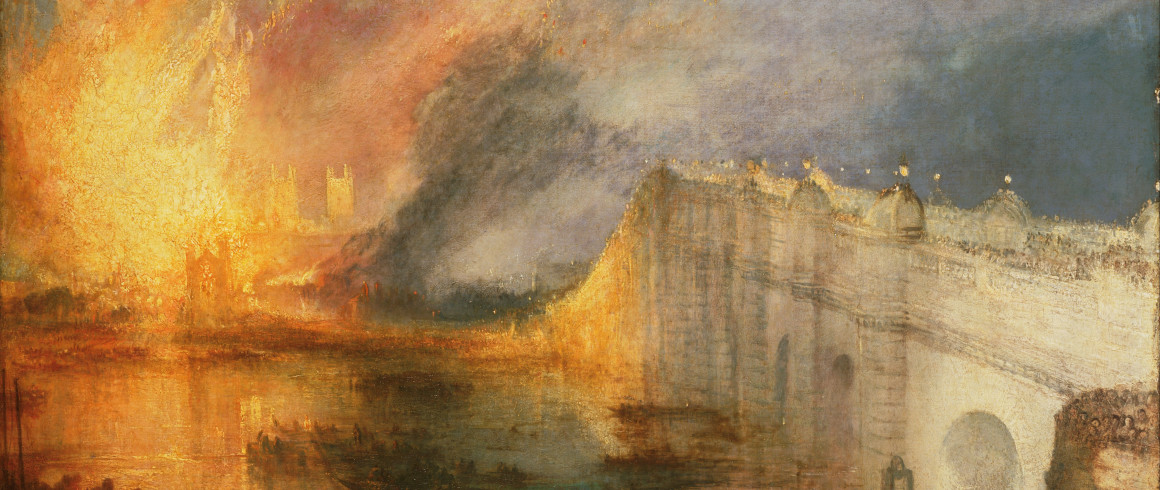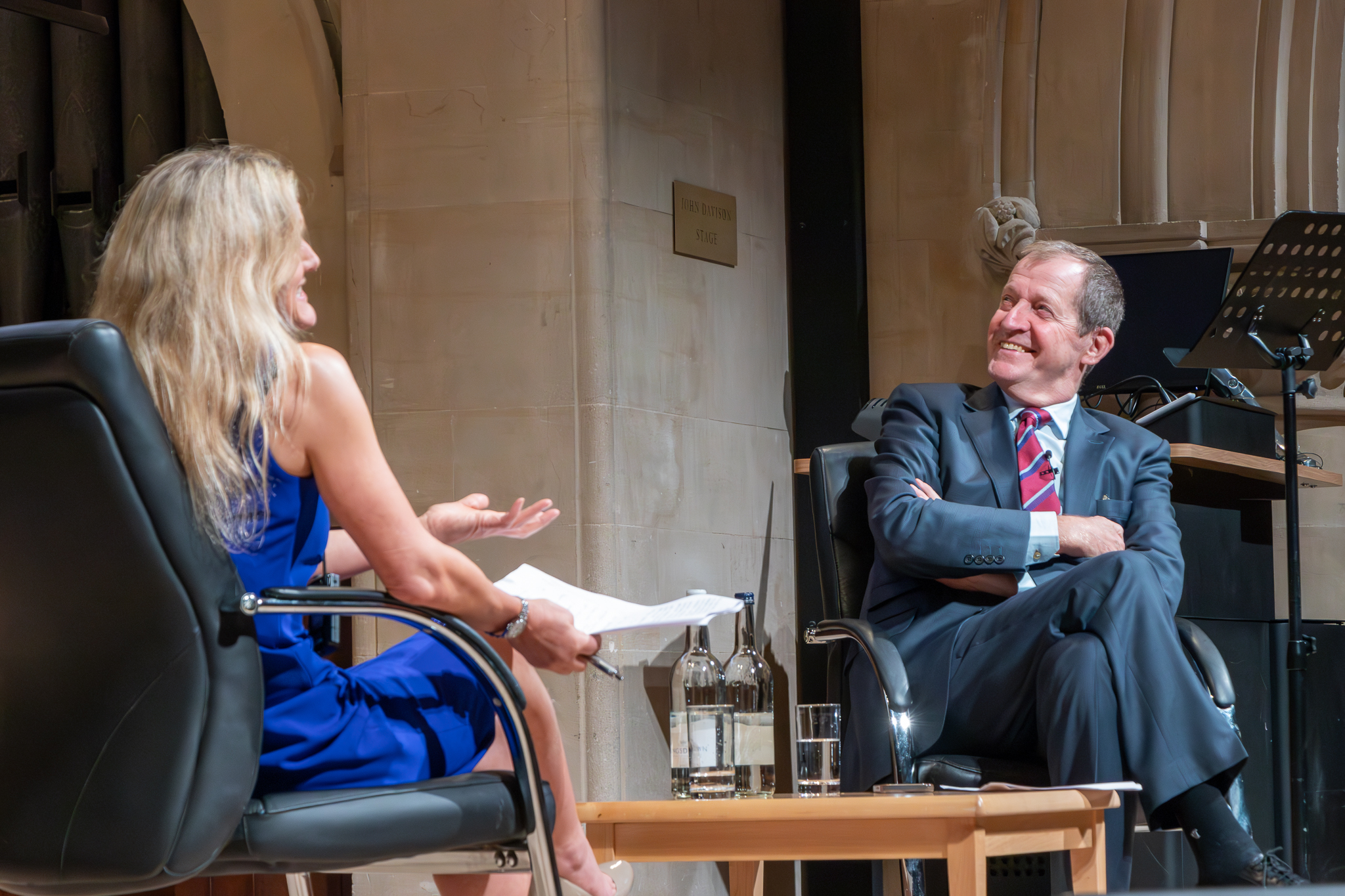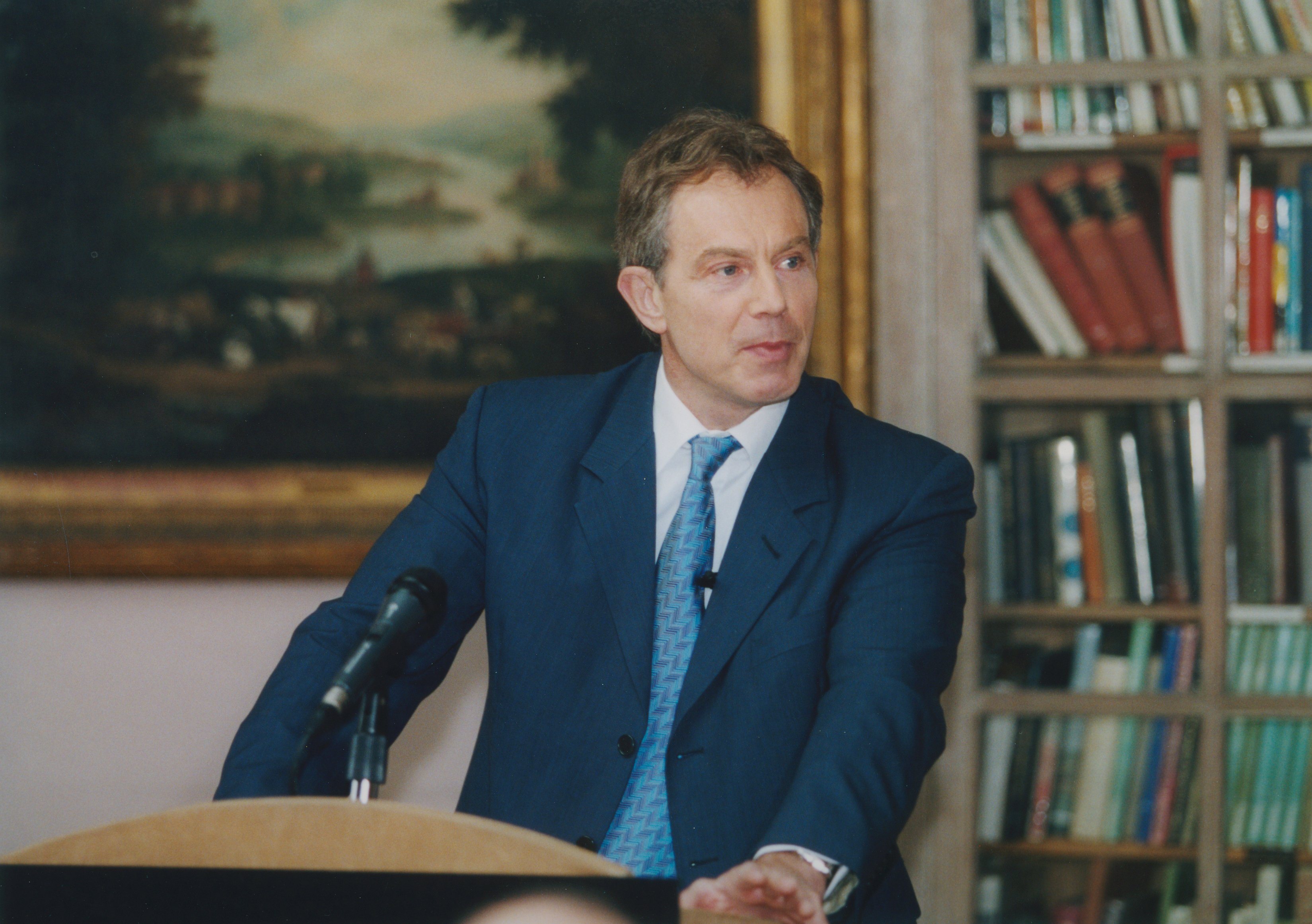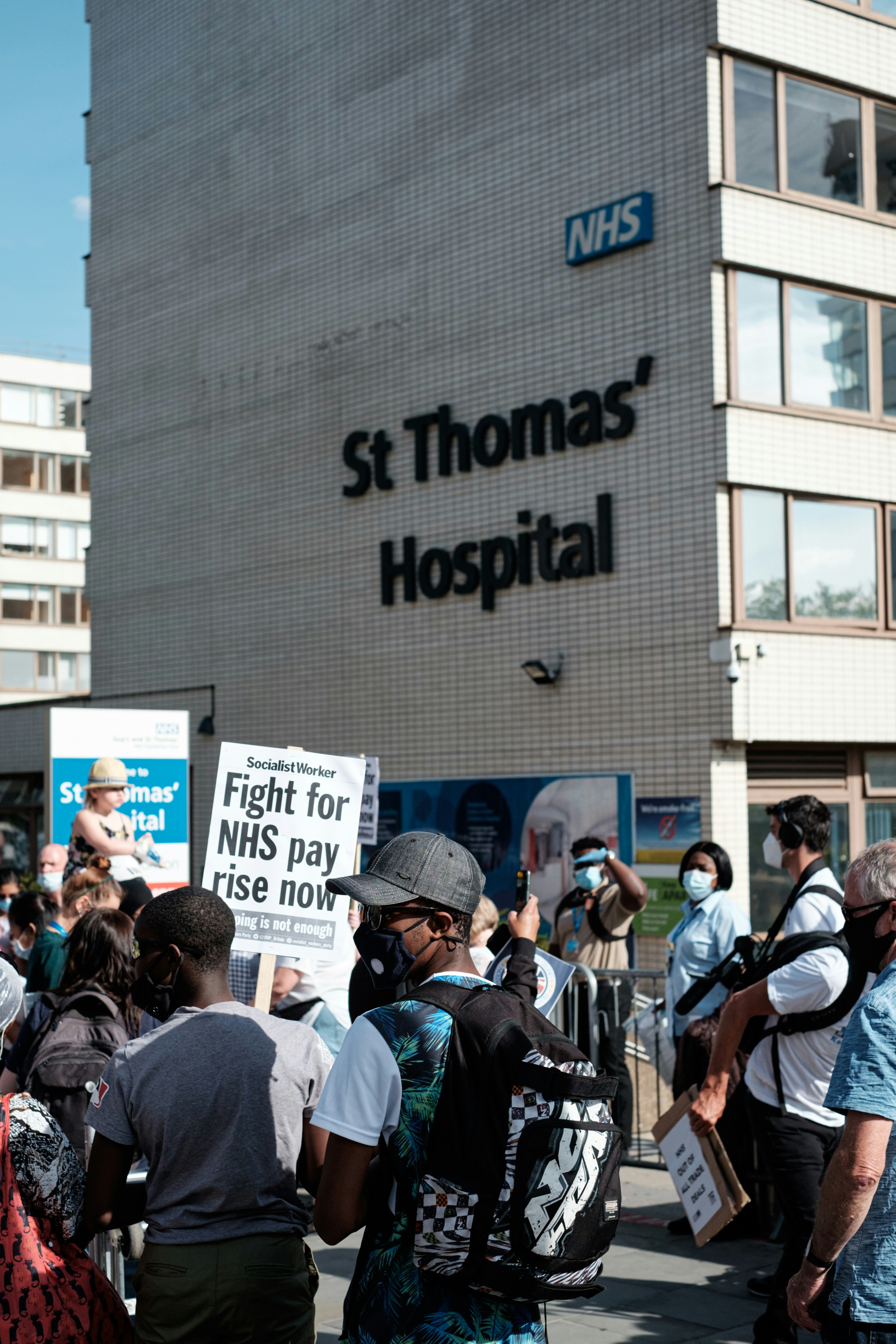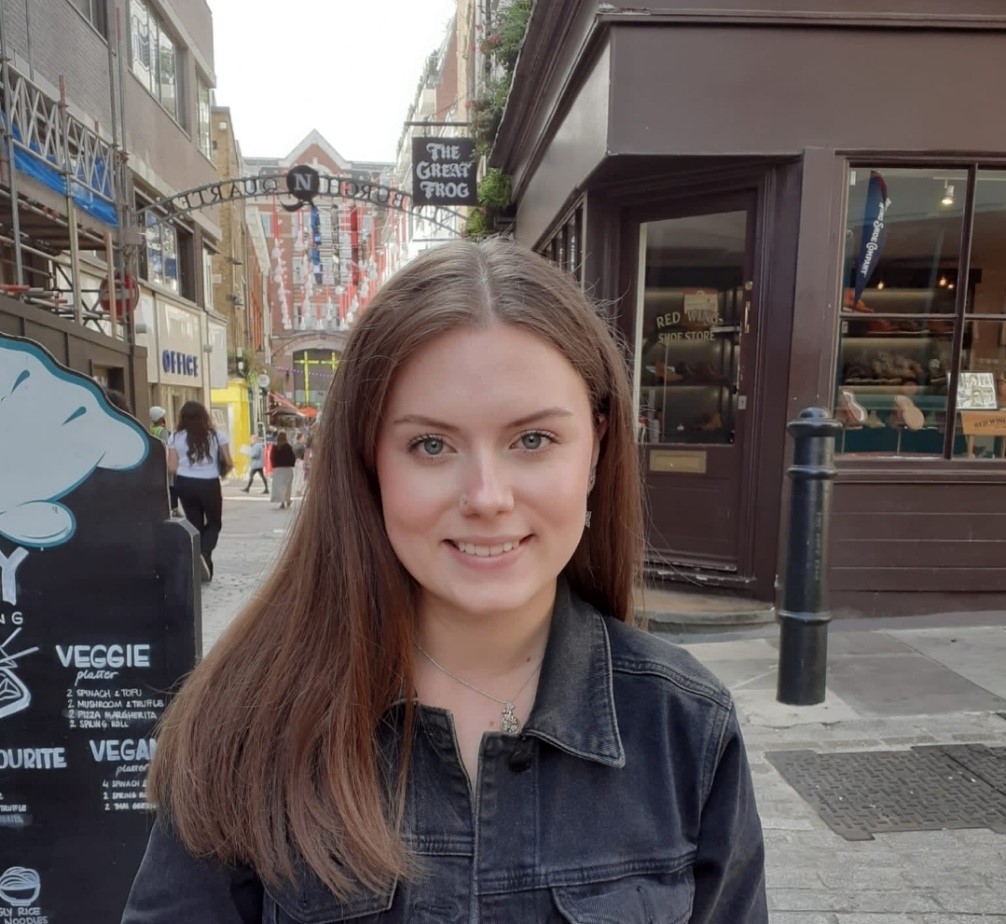January 2024 - Abby Reyes (2021), third year Pembroke Anthropologist
As Development Director, Matthew Mellor, noted in his December blog, whether it is our ageing population and the subsequent precariousness of our healthcare system and welfare state, massive economic decline and inequality, or the seemingly impending environmental collapse, many of the problems we face seem to have an intergenerational angle to them which causes conflict between the young and old, and engenders a sectarian divide. The old seem to have it good, whilst the young suffer.
This year our blog series will attempt to address 'Intergenerational Conflict' in all its various forms, and answer the questions that arise from this. Through our blog series, our William Pitt Seminar, and our Virtual Round Table we hope to address this theme of 'Intergenerational Conflict' and observe the variety of ways that this materialises.
Inaugurating our blog series this year is third year Pembroke Anthropologist and former Interviews Editor at Varsity, Abby Reyes (2021), who introduces our theme and interrogates the notion of 'conflict', whilst asking what we can do to change our fortunes.
As I approach the end of my time at Cambridge, the small talk question most frequently inflicted upon me by adults is “What do you plan to do after you graduate?”
It’s currently a much discussed topic among my peers, as conversations at pre-drinks in our college rooms turn to who in our year group has secured a training contract, or which of our graduate friends have ‘sold out’ (yes, we’re gossiping about you, ‘finance bro’). But as we begin to negotiate how on earth we’re going to rent flats in London and afford a weekly grocery shop, that consultancy job becomes vastly more appealing than the socially ‘meaningful’ work in the charity sector we thought we were headed for. It’s a regrettable reality for young people who should want to change the world, not worry about which corporate graduate scheme provides private healthcare benefits as the NHS continues to be brought to its knees.
I recently interviewed Alastair Campbell, prior to him speaking at the Pembroke College Jo Cox Memorial Lecture. He pointed out, horrified, that as a ‘politically sentient being’ I had only known a Conservative government. And it’s true, my first moments of political awareness included Googling ‘austerity’ and noticing the alarming increase of food banks in Southeast London, where I grew up.
But as a child of New Labour, born in 2003, I like to think that Generation Z were born into hope. We are Sure Start babies, the teenagers who had our state funded secondary schools rebuilt for millions, the recipients of the Blair trust fund on our 18th birthdays. ‘Things Can Only Get Better’… And I believe that they did, until 2010. No wonder young people are furious with our Conservative-voting grandparents. From tuition fees to the post-Brexit price of cheese, we have a right to be angry.
As a Social Anthropology student, my academic prerogative is to try to understand the worldviews of different communities. And so I try to understand the frequent ‘snowflake’ bashing and the stereotypes of the boomer generation who think ‘woke’ young people should stop complaining. My own Conservative-voting grandparents were all golden examples of social mobility, they left school early and then worked incredibly hard to ensure that their children had better opportunities than they were afforded. Their support for an entrepreneurial, meritocratic and more fiscally cautious way of politics becomes understandable.
Intergenerational rifts are probably much exaggerated by the media, it’s a simplistic binary, and follows trends of pitting groups against each other: ‘us’ versus immigrants, ‘Leave’ versus ‘Remain’, and of-course, young versus old. As previously mentioned, Jo Cox’s legacy and memory is deeply carved into Pembroke College’s ethos, and so the immortal words of her parliamentary maiden speech will always stay with me: “We have more in common than that which divides us”.
In British politics, I believe the most salient example of commonality is rallying around the NHS. ‘From cradle to grave’, for young and for old, healthcare free at the point of use for all. From the clinical trial that gave my grandmother with myeloma thirteen years instead of three to the life-saving open heart surgery performed on my disabled sister at eleven months old, I, like everyone in this country, can say that the NHS transformed our lives for the better. Naturally, I rally against those who vote in favour of a party who do not adequately fund health and social care. But when I feel angry with friends and family members who differ to me politically, I try to remember that, for the most part, people do not vote out of spite but often out of fear. Fear that public services will be further slashed, fear that their children won’t get a good education, fear that they won’t have housing.
“We have more in common than that which divides us." - Jo Cox
Turning on each other is not the answer. Whilst anger is better than apathy, tribal politics and seeing ourselves as irreconcilably different to those with dissimilar life experiences, such as other generations, is not productive. ‘Older generations have had it good while the young suffer’ is far too broad a notion. Acknowledging that our lives have overlaps, idiosyncrasies and are all marked by suffering in some way is a small step in the right direction. So yes, lots of young people are angry at older generations – many of ‘us’ blame ‘them’ for various messes we currently face. But as Social Anthropology has taught me, approach those whose worldviews may seem alien and opposed to yours with nuance, empathy and respect.
Abby Reyes (2021) is a third year Human, Social, and Political Sciences student at Pembroke College, focusing on Social Anthropology. In the previous academic year she was President of the Pembroke Politics Society, hosting guests such as Baroness Helena Kennedy KC, Sir Vince Cable, Wes Streeting MP and Sir David Runciman. Most recently Abby was Interviews Editor at Varsity, Cambridge’s oldest student paper. She grew up in the London Borough of Southwark, where she works as a barista and shop assistant during university holidays. Abby is an active member of the Labour Party, inspired by the work done by Harriet Harman MP in the Camberwell and Peckham constituency she was born and raised in. She hopes to work in the media after graduating.
